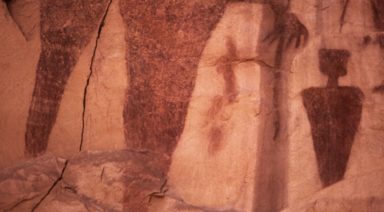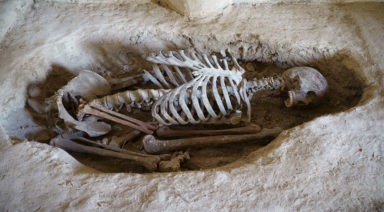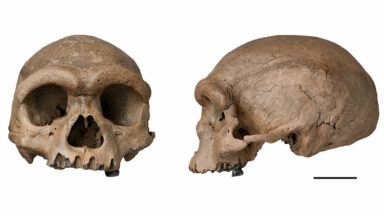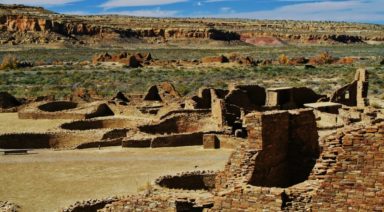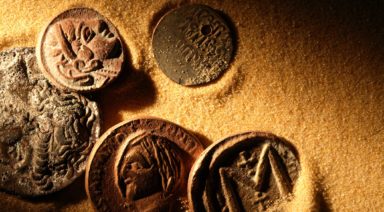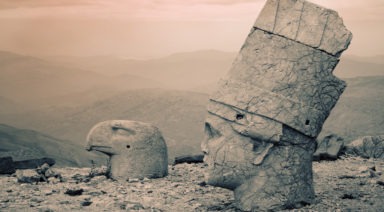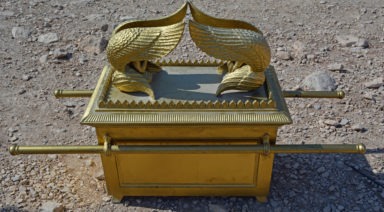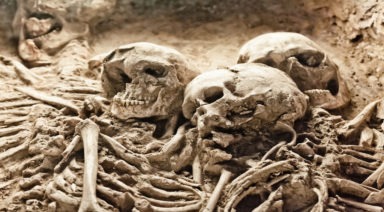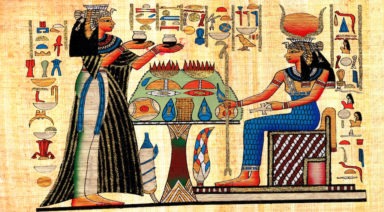Grecian and Roman Gods
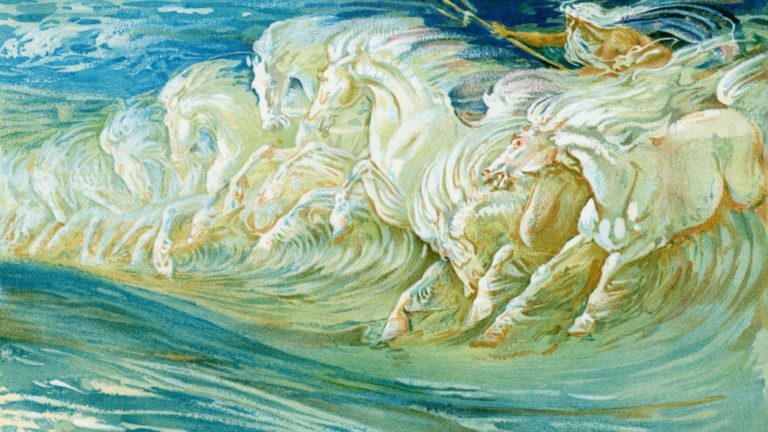
It’s probable that no mythology has been as influential on Western culture as that of the ancient Greeks, and by extension, the ancient Romans. Words like nemesis, fury, fate and muse, are all founded in Greek mythology. The constellations are almost all connected to Greek myths. From architecture, to music and politics, Rome and Greece have influenced us in profound ways. With this in mind, let’s take a look at the gods worshipped by the Greeks and Romans and ponder their influence upon us.
Before going on, it’s important to note the difference between the gods of Greece and those of Rome. Even though their deities were essentially the same, with different names, each culture had a different way of looking at their gods.
The Greeks viewed their deities as possessing all the personality flaws we mortals are burdened with, and also with some that only unlimited power could bring. For example, Hera and Zeus were not a happy couple.
They bickered and exacted revenge on each other, most often due to Zeus’ philandering with anyone he chose and his many illegitimate children. Poseidon, after being disrespected, caused a king’s wife to become amorously obsessed with a bull, the consequences of that infatuation being less than beneficial.
The gods of Rome, although capable of human failings, were more dignified and generally acted superior to mortals. The Roman gods were part of a state religion, and as such were imbued with an appropriate, dignified persona. Jupiter was a regal and less volatile king than his Greek counterpart, Zeus.
Zeus
AKA Jupiter
For Zeus, the king of the gods, there was never any doubt as to whom was in charge. Zeus ruled over everything above the ground, excepting the seas, which were ruled by Poseidon.
Zeus was the sole wielder of the lightning bolt, which made him incredibly powerful and gave him a reputation for being fickle. This is a common characteristic of lightning gods. They have immense power at their fingertips, but don’t always seem to have any rhyme or reason as to their choice of victims. This random factor may have added to Zeus’ and Jupiter’s association with fortune and luck, but there’s more to it, if we look beneath the surface of the myths.
Zeus took whatever he wanted and he wanted a lot. If he saw a mortal that he found attractive, he forced himself upon that poor person. He fathered many illegitimate children, some of them quite heroic, Hercules being an example. When he was in the mood for taking love by force, he assumed the form of a bull, a bolt of lightning, masqueraded as a woman’s husband, appeared as a swan and even a shower of gold. Most of these assaults were disastrous to the recipient of his affections and almost always drew the attention and wrath of Hera, his divine wife.
Although there’s no way to justify any of his actions, even in mythic form, it may have been a way to explain why some people seem to be physically or intellectually superior to others. It may also have served to remind us of the unexpected nature of natural phenomena. For me, it exemplifies what happens when we don’t think through situations and only follow our impulses. I view Zeus as an example of poor desire control, leading to some horrid outcomes. Lasting trouble often arrived through Hera, who horribly tormented the family of victims for generations.
Jupiter, his Roman counterpart, was more regal, viewing humans as more than simple playthings and objects of whims.
Zeus has always served as an example of what can happen when unchallenged power resides with one individual.
Yes, that person or god may face retaliation, but those beneath him/her will always suffer the most dire consequences.
Ares
AKA Mars
Ares, the Greek god of war, wasn’t generally liked. He was considered to be conniving, unprincipled, at times cowardly, and unwilling to go into battle without an entire entourage. I’ve always thought that this viewpoint was an interesting one. It understood the necessity of war, but didn’t glorify it.
On the other hand, Mars, the Roman god of war, was respected, feared and considered to be vital to the health and welfare of the Roman Empire. like Ares, he never went into battle alone, but his was a strategy that made great sense and served him well. In battle, he first sent in Deimos and Phobos, their names meaning panic and fear. Once they had impacted the battlefield, infecting it with terror and a lack of logic, Mars moved in and finished up the job.
It’s interesting to note that Deimos and Phobos were sometimes depicted as ravens. Odin, another warrior God, also had two ravens that went with him everywhere, but instead of instilling fear, they gathered information and brought it back to the Norse God.
Ravens and other carrion eaters were naturally associated with war deities, due to their presence upon the battlefield. It was said that following crows would always lead the traveler to a place of misfortune. Luckily, this point of view has not persisted and ravens are now recognized as incredibly intelligent creatures who have the ability to communicate, if only we take the time to listen.
The 2 moons of the planet Mars are named Deimos and Phobos.
Hermes
AKA Mercury
Hermes was a complicated god. He was multifaceted and represented many aspects of nature, as well as the human experience. As one of the three gods eventually linked to ancient wisdom, Mercury and Thoth being the other two, he brings a rich tradition of knowledge and initiation with him.
Hermes was the god of the mind, thought, intelligence or lack thereof, technical skills that require abstract thinking, the healing arts, many metaphysical disciplines, fish, merchants and merchandising, certain aspects of the libido, mathematics, and many other subjects. Much more than being the messenger of the gods, Hermes represented the gifts given to us at birth, as well as the ability to develop those gifts during our lifetime. Hermes was also the Psychopomp, leading the deceased from the world of the living into the realm beyond. We might be tempted to see a thread of connection between Hermes and Anubis, and that would be a correct thread to follow.
Hermes also had a mischievous side, as well as one that could be relatively negative, depending upon the myth involved. Generally speaking, Hermes functioned as a messenger, magician and facilitator to those that relied upon him. At one time, most metaphysics were known as the Hermetic Arts. This implies that the great mysteries could be connected to Hermes, as he knew the way in and out of the underworld and could walk between both realms. This makes perfect sense. His understanding of mathematics, medicine and other arcane subjects made him one of the most respected of all deities.
The Roman god, Mercury, shared many of the same attributes as his Greek counterpart. The wand of Mercury was the Caduceus. Although this wand was mistakenly attributed to medical doctors, it really is a tool of magic and the key to understanding many mysteries. Although not antithetical to the medical profession, the staff of Asclepius is certainly more appropriate, being a walking stick with the serpent wrapped around it, a common motif for healers in the ancient world.
Mercury had a reputation for cleverness, merchandising, deceit and thievery and was the patron god of thieves.
It’s fascinating to note that neither good nor bad was necessarily attached to many of the gods. They simply ruled the area they were in charge of. As is often true, it appears that conscience is a personal matter, and decidedly a human one.
Poseidon
AKA Neptune
Poseidon was the brother of Zeus and Hades. When the cosmos was being divided up, his was the realm of the seas and oceans.
My favorite story of Poseidon has to do with King Minos being given a gift of a snow-white bull from Poseidon, bestowing Minos the kingship of Minoa (Crete) over his brothers. Poseidon’s only demand was that Minos sacrifice the bull back to him after he’d been crowned monarch. Instead, Minos kept the bull and sacrificed another, thinking he could fool the god of the sea. Angered, Poseidon caused Minos’ wife, Pasiphae, to fall madly in love with the bull, the gift from the sea god. Making a long story short, her passion led to her giving birth to a terrible monster, the Minotaur, who became a huge burden upon the king and his country.
Such stories, although bizarre and disturbing, highlight the fact that we owe an allegiance to nature and have an obligation to follow through with our trust to the earth and the creatures upon it.
Ignoring this trust, whether it be for selfish reasons or out of ignorance, must always lead to the creation of monsters that threaten our existence. The burden of the Minotaur, a scourge upon the people of Minoa, lay not upon the obsessed wife of Minos, but upon the king’s greed and his arrogance in thinking that just because he was the king, he could get away with anything. Some lessons need to be learned over and over again.
Hades
AKA Pluto
Hades was the other brother of Zeus and essentially drew the short stick. His was the realm of the underworld and darkness. Not able to get out often, he pulled a page out of Zeus’s playbook and erupted out of the bowels of the earth one day, his chariot drawn by his team of midnight, black horses and abducted a beautiful young maiden, taking her back into the realm of darkness, where he made her his queen. She became known as Persephone and grew to love her husband and be feared in her own right, but the beginnings to her new life were less than ideal. It seemed to run in the family.
The Roman God of the underworld, Pluto, seems much colder to me. It’s fitting that the icy body at the edge of our solar system, one that has created such controversy, should be named Pluto.
He is not the source of the word plutocracy. That word actually comes from the Greek God Plutus, the deity of wealth. A case could be made, however, that since Pluto could lay claim to everything beneath the earth: gold, silver, gems and all other minerals, that this cold, unfeeling entity was in control of most the world’s wealth. It seems that very little has changed.
I think there is an excellent lesson here. We don’t truly own anything and must always remember that what we have will eventually be returned to the earth, from which it came.
Hephaestus
AKA Vulcan
One of my favorite deities is Hephaestus, or Vulcan. Hephaestus was the blacksmith of the gods and forged the bolts of lightning that Zeus hurled.
He ruled controlled fire and the working of metals and machinery.
He was the only God to be deemed ugly and had physical infirmities, yet he was brilliant and could make almost anything out of metal.
In an incredible act of mischief, Zeus declared that Aphrodite and Hephaestus be a wedded couple. In putting together the most beautiful of all the deities with the most physically unappealing, he created a miserable arrangement, filled with infidelities by Aphrodite and attempts by Hephaestus to prove her affairs.
This exemplifies a glorification and valuing of beauty over almost everything else. Thank goodness so many mythological ideals of that time have been overcome, or have they? At times it seems obvious that we have a long way to go. Only when we stop objectifying each other and begin seeing and appreciating the real value within, can we truly be free.
Until next time, I wish you all peace and love.
Exploring the Ancient Pyramids of the World

If there is one structure that still gives rise to great amounts of interest, speculation and awe, it’s the ancient pyramids.
Oftentimes when we think of the pyramids, we concentrate our attention on the most famous –– the Egyptian pyramids so often featured in movies and travel magazines.
But there are actually many more pyramid locations other than Egypt, including Central America, China and beyond. You may be surprised by the varied places you can find pyramids across the world –– including underwater.
By delving into more pyramid facts, we can unlock more information and understanding about these sizable structures, their prominence throughout the world, and even their relevance for those throughout the world.
What Exactly is a Pyramid?
While you may have initially learned about the pyramid shape in geometry class, architectural pyramids are a bit more complex.
Generally the shape of pyramids include at least three outer triangular surfaces which join together at a point at the top, with the base being any number of shapes with multiple sides. This means that the base of a pyramid could be a square or other polygon.
Pyramids were generally built this way in order to distribute the majority of the weight closer to the ground, meaning less pressure coming from the top. This also allowed the builders of the pyramid to more easily constrict the structures using dry stone construction.
Pyramids in Ancient Civilizations
While the general pyramid structure generally remains the same, each civilization that constructed pyramids did so in a slightly different way. Let’s take a look at a few of the civilizations that lay claim to impressive ancient pyramids, and why each one is worth a closer look.
Egypt
The three famous ancient pyramids found in Egypt are what most people think of when they think of the pyramids. Current Egyptologists believe the Great Pyramid was constructed for Pharaoh Khufu, and is situated the furthest north.
Said to have been constructed in 2551 B.C., it used to measure about 147 meters, it now stands at around 137 meters, and contains more than 2 million blocks. The Great Pyramid was deemed one of the Seven Wonders of the World by the Greeks, and is the only one that has survived to the present day.
Another one of the over 100 pyramids in Egypt is the Pyramid of Djoser, built for his namesake the Pharaoh as a mausoleum. This pyramid is more of a step pyramid design, which involved six successively smaller layers and a flat top.





